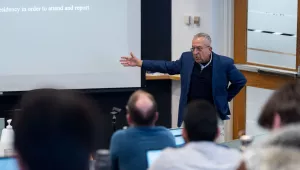
Abstract
U.S counterinsurgency doctrine assumes that states must make liberalizing reforms that will defeat insurgencies by winning the “hearts and minds” of the population. This assumption is mistaken. Analysis of the Malayan Emergency and the civil wars in Oman and El Salvador reveals that governments defeat insurgencies by buying off rival domestic elites and using brute force against both insurgents and their civilian supporters. The U.S. approach to counterinsurgency is therefore unlikely to succeed.
Jacqueline L. Hazelton, "The 'Hearts and Minds' Fallacy: Violence, Coercion, and Success in Counterinsurgency Warfare," International Security, Vol. 42, No. 1 (Summer 2017), pp. 80–113.
The full text of this publication is available via International Security.





